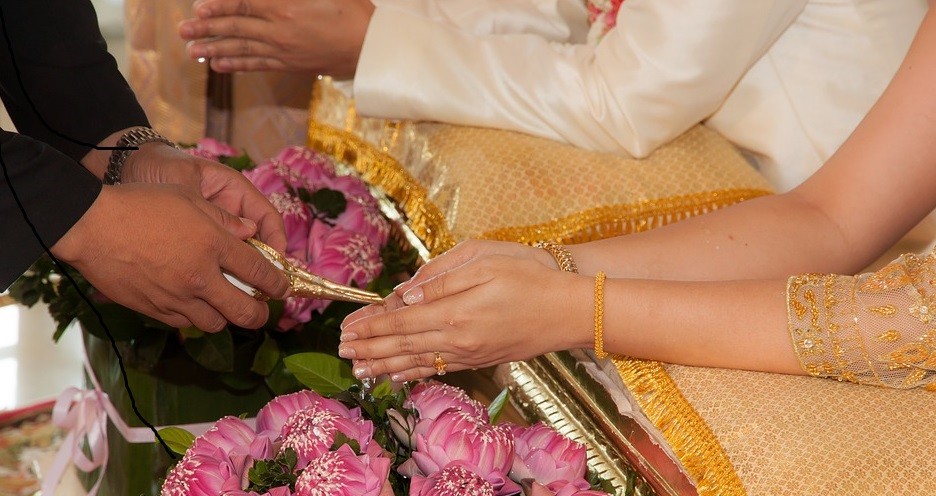Foreign Spouse’s Statutory Right to Inherit Land
 Foreign Spouse’s Statutory Right to Inherit Land
Foreign Spouse’s Statutory Right to Inherit Land
This legal article was published by Narit Direkwattanachai in regard to the foreign spouse’s statutory right to inherit land in Thailand.
Many foreign residents in Thailand happen to be married to Thai spouses or at least have some Thai family members. It is a well-known fact that in general, no foreign individual may own any land plot in Thailand due to the Land Code’s restriction on foreigners’ ownership of land in Thailand. Despite the aforementioned restriction, this article will walk you through one of the most forgotten statutory rights of a foreign individual with a Thai spouse, i.e. foreign spouse’s right to inherit the land plot up to one rai for a residential purpose from one’s Thai spouse when the Thai spouse predeceases him/her.
 If you’re married to a Thai spouse and your Thai spouse happens to own a land plot where your home is built, don’t you know in the unfortunate event that your Thai spouse predeceases you, the Land Code allows the foreign spouse like you to inherit the land plot up to one rai for a residential purpose if either (i) Thai spouse’s will or (ii) a statutory arrangement under the Civil and Commercial Code leaves the land plot to you, the foreign spouse.
If you’re married to a Thai spouse and your Thai spouse happens to own a land plot where your home is built, don’t you know in the unfortunate event that your Thai spouse predeceases you, the Land Code allows the foreign spouse like you to inherit the land plot up to one rai for a residential purpose if either (i) Thai spouse’s will or (ii) a statutory arrangement under the Civil and Commercial Code leaves the land plot to you, the foreign spouse.
Section 93. For an alien who acquires land by inheritance as a legal heir, the Minister may permit the acquisition of such land, which, when combined with the land already owned, does not exceed the limit under Section 87.
Section 87. The amount of land permitted under the preceding Section shall be as follows:
- for residence, not more than 1 rai per family;
- for commercial purposes, not more than 1 rai;
- for industrial purposes, not more than 10 rai;
- for agricultural purposes, not more than 10 rai per family;
- for religious purposes, not more than 1 rai;
- for public charity purposes, not more than 5 rai;
- for cemeterial purposes, not more than ½ rai per family;
If any alien wishes to have the right to land for industrial purposes in excess of that provided in (3), and if deemed appropriate, the Council of Ministers may permit the acquisition of land in excess of the limit prescribed, by imposing conditions thereon, and the provisions of Section 48 shall apply mutatis mutandis.
Criteria for Inheriting Land Plots in Thailand
The criteria for inheriting the land plot in Thailand from one’s Thai spouse or one’s family member are summarised here below.
1. The foreign spouse must be legal marriage to the late Thai spouse at the time of death. Ideally, a marriage registration should be made at a local district office in Thailand or a Thai Embassy outside Thailand or at least a foreign marriage should be registered with a local district office where the couple live.
2. The foreign spouse must seek and obtain permission from the Minister of Interior Affairs (the “Minister”). It is noteworthy that in practice for any land plot in Bangkok, the Minister delegates this power to the Director General of the Department of Lands (to grant this permission) and for any land plot outside Bangkok the Ministerial delegates this power to a provincial governor of the province where the land plot is located (to grant this permission).
3. An inherited land plot for a residential purpose must not exceed one rai (1,600 square meters, 17,222 square foot, 0.40 acre or 0.16 hectare).
4. As long as the foreign spouse’s landholding in Thailand for a residential purpose does not exceed one rai (1,600 square meters, 17,222 square foot, 0.40 acre or 0.16 hectare), the foreign spouse is not required by the Land Code to sell or dispose of such inherited land.
5. After the foreign spouse inherits the land plot from the late Thai spouse, the foreign spouse must seek permission from the Minister before selling the land plot. Similarly in practice for any land plot in Bangkok, the Minister delegates this power to the Director General of the Department of Lands (to grant this permission) and for any land plot outside Bangkok the Ministerial delegates this power to a provincial governor of the province where the land plot is located (to grant this permission).
What does a foreign spouse have to prepare to inherit this land plot in an unfortunate event?
There are a couple of steps that the Thai spouse has to take in order to ensure that the land plot will be inherited by one’s foreign spouse.
1. Registering the Marriage in Thailand or Recording the Non-Thailand Marriage with the Local District Office
Unfortunately, any unregistered marriage (or a domestic partnership) is not recognised in Thailand. If you have not registered marriage with your Thai partner at a local district office in Thailand or a Thai Embassy overseas, you and your Thai partner must show up at the district office or the Thai Embassy to register the marriage under Thai law.
In the event that you and your Thai spouse have already got married under a foreign law, you may want to record the non-Thailand marriage with the local district office where your Thai spouse has a domicile. Our firm can help you record any non-Thailand marriage with the district office for you.
2. Making a Will
 Inheritance under the statutory arrangement of the Civil and Commercial Code is a complicated issue and we will not get into details here. However, it is safe to say that generally, a Thai spouse might have a living parent and/or a child. Unless the Thai spouse duly makes a will to exclude his/her living parent and a child from inheriting this land plot, under the Civil and Commercial Code each living parent or each child is normally entitled to receive a fraction of ownership in the land plot, depending on a circumstance.
Inheritance under the statutory arrangement of the Civil and Commercial Code is a complicated issue and we will not get into details here. However, it is safe to say that generally, a Thai spouse might have a living parent and/or a child. Unless the Thai spouse duly makes a will to exclude his/her living parent and a child from inheriting this land plot, under the Civil and Commercial Code each living parent or each child is normally entitled to receive a fraction of ownership in the land plot, depending on a circumstance.
Therefore, if the Thai spouse intends to leave this land plot, whose size must not exceed one rai, to the foreign spouse, for a residential purpose, the Thai spouse must properly make a will to leave this land plot to the foreign spouse. This means if your Thai spouse has never made any will at all or your Thai spouse’s existing will does not explicitly leave the land plot to you, it might be a good time to make a new will to explicitly leave the land plot to you in case the Thai spouse predeceases you, the foreign spouse.
For further information, please contact Khun Narit Direkwattanachai, a corporate, tax & trial attorney at NARIT & Associates with expertise in corporate & commercial, commercial dispute and tax law. He can be reached at [email protected]
For other interesting articles from our members and chamber activities, please visit our website.
